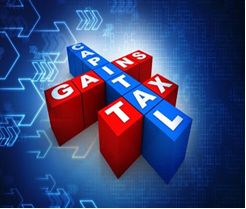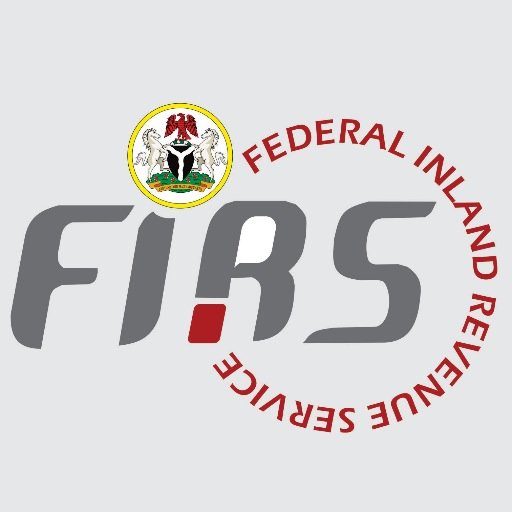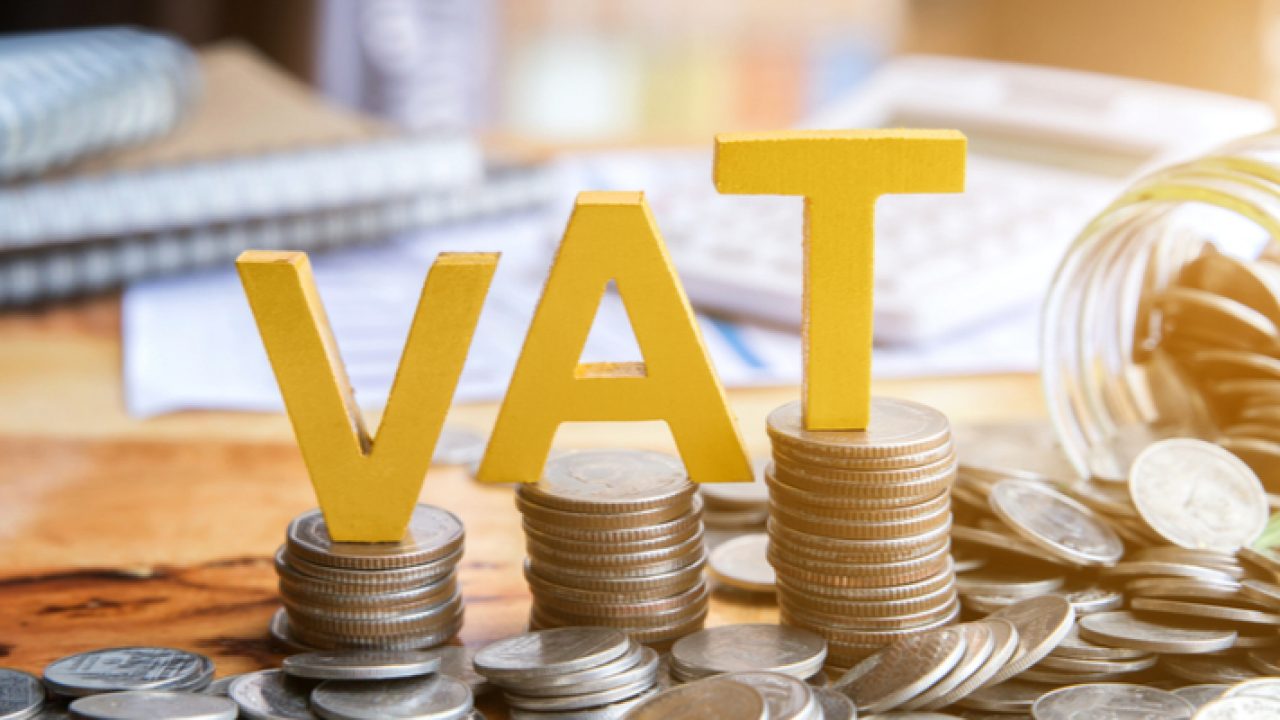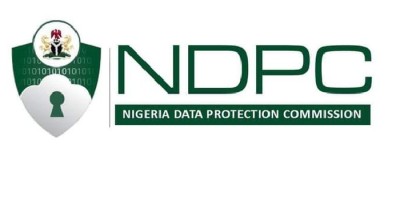Finance Act 2020: Highlights Of Latest Developments In Nigeria’s Tax Regime
Posted on Tue 26 Jan 2021
- Download Resource
A. OVERVIEW
President Muhammadu Buhari signed the Finance Act 2020 into law on December 31, 2020. The new legislation followed hot on the heels of the Finance Act 2019[1] which amended several tax statutes. The Finance Act 2020 was enacted in furtherance of the Federal Government’s progressive reform of the business climate in Nigeria, and the need to constantly restructure the tax system to align and conform same with international best practices, and make it respond effectively to the changing socio-economic landscape.
Specifically, the Finance Act 2020 amended fourteen (14) principal tax and tax-related legislation. The thrust of the legislation includes boosting government revenue, preventing base erosion, streamlining areas of regulatory conflict and clarifying ambiguities in extant laws and regulations, as well as providing fiscal reliefs to small and medium enterprises and entities involved in key or priority areas of the economy, among others.

Whilst the Finance Act 2020 amended some provisions of the Finance Act 2019, it is important to note that it did not expressly repeal the statute. The reasonable expectation, is that the provisions of the Finance Act 2019 that are not amended by the 2020 legislation shall continue to apply alongside the provisions of the Finance Act 2020.
The Finance Act 2020 provides tax incentives for businesses that make donations in support of policy measures put in place by the Government against any pandemic or natural disaster. The new legislation establishes a Crisis Intervention Fund and Unclaimed Funds Trust Fund.
The expected commencement date of the Finance Act 2020 is January 1, 2021 or such other date that may be so specified either by a law made by the National Assembly or by a Presidential Order.
B. HIGHLIGHTS
From the commencement of the Finance Act 2020, the following developments shall take effect and shall become applicable to affected income and asset accruing or received in, brought into, or derived from Nigeria.
I. Establishment of a Crisis Intervention Fund
- A fund to be known as the Crisis Intervention Fund (“CIF”) shall be established, with an initial capital of N500 billion or such other sums as may be approved by the National Assembly.
- The sum shall be provided mainly out of the Consolidated Revenue Fund, and shall be utilized in meeting any crisis-related expenditure (as may be provided in an Appropriation Act) or such other exigencies that may arise pursuant to the Fiscal Responsibility Act and the Constitution of the Federal Republic of Nigeria, 1999.
II. Establishment of an Unclaimed Funds Trust Fund

- There shall also be established, by way of trust, a sub-fund of the CIF to be known as the Unclaimed Funds Trust Fund (“UFTF”); which shall be governed by a Governing Council to be chaired by the Minister of Finance and co-shared by someone to be appointed from the private sector.
- The Debt Management Office (“DMO”) shall supervise and house the Secretariat of the UFTF, and shall as well operate the UFTF in collaboration with the Central Bank of Nigeria (“CBN”) and the Securities and Exchange Commission (“SEC”).
- From the commencement of the Finance Act 2020, any dividend of a public limited liability company quoted on the Nigerian Stock Exchange (“NSE”), which has remained unclaimed for a period not less than six (6) years, and any amounts in a dormant bank account which has remained unutilized for the same period; is required to be transferred into the UFTF by the concerned public limited liability company, Registrar or deposit money bank, as the case may be.
- Official bank accounts belonging to the Government (either at the federal, state or local level) or any of its Ministries, Departments and Agencies (MDAs), are exempted from the provisions relating to the UFTF.
III. Companies and Allied Matters Act (“CAMA”)

- Further to the establishment of the UFTF, the Finance Act 2020 amends section 432 of the CAMA. Accordingly, unclaimed dividends declared by public limited liability companies (“PLCs”) quoted on the NSE are required to be immediately transferred into the UFTF, where they have remained unclaimed for a period not less than six years from the date of declaring the dividends.
- Unclaimed dividends transferred into the UFTF shall be a Special Debt owed by the Federal Government of Nigeria (“FGN”) to the shareholders, and shall be available for claim at any time pursuant to the perpetual trust in place.
- We note that under section 432 of the CAMA, shareholders have a right to recover unclaimed dividends within twelve (12) years of the declaration of such dividends, failing which the dividends shall be added to the profits of the concerned company(s) and redistributed to all shareholders. With the amendment of the section by the Finance Act 2020, a perpetual trust for the benefit of the affected shareholders has now been created in respect of unclaimed dividends of PLCs transferred into the UFTF. The thrust of this new amendment is that right of action of the shareholders of publicly listed companies to claim dividends declared by their companies shall no longer be extinguished by limitation of time. A clear corollary of this development, is that the FGN will be able to borrow and utilize unclaimed dividends transferred into the UFTF for budgetary/developmental purposes, until such dividends are recovered appropriately by the shareholders. Until dividends transferred into the UFTF are reclaimed, they shall be deemed to be held in trust by the FGN in perpetuity for the benefit of the respective shareholders.
IV. Capital Gains Tax Act (“CGTA”)
- Sums received as compensation for loss of office up to ten million naira (N10m) are not chargeable to Capital Gains Tax (“CGT”). Where any sum received is above this threshold, the amount received in excess thereof, shall be construed and deemed to be chargeable gain and subject to CGT.

- It is now the duty of the person who pays compensation for loss of office, to deduct CGT payable on such chargeable gain at source, and remit same to the appropriate tax authority, within the time prescribed under the Pay-As-You-Earn (PAYE) Regulations.
- In our view, the main thrust of this amendment is the grant of more tax relief on payments received as compensation for loss of office/employment, as such relief under the principal Act is limited to ten thousand naira only.
- CGT returns is also now required to be filed, no later than June 30 and December 31 of the year, in which a chargeable asset is disposed.
- Any person who disposes an asset is required to compute the CGT payable thereon, file a self-assessment return in respect thereof, and pay the tax computed thereon within the specified period.
- We note that with this amendment, the application of income tax administration provisions relating to time for filing CGT returns (as prescribed in the Personal Income Tax Act and Companies Income Tax Act in accordance with the requirements of Section 43 of the CGT Act) will no longer apply. In essence, CGT payable on any chargeable gain derived from the disposition of any asset prior to June 30 in any year, shall be payable no later than June 30 of that year, whilst CGT payable on assets disposed thereafter but before December 31 of the year, shall be payable latest by December 31 of the same year.
V. Companies Income Tax Act (“CITA”)
- Enterprises involved in primary agricultural production (“PAP”) are eligible for the grant of pioneer status.
- PAP has been defined to mean: Primary crop production comprising the production of raw crops of all kinds; primary livestock production comprising the production of live animals of all kinds and their direct produce, such as live or raw meat, poultry, and fresh eggs & milk; primary forestry production comprising the production of timber of various kinds, such as firewood, charcoal, uncultivated materials and other forestry products including seeds and saplings; primary fishing production comprising the production of fish of all kinds including ornamental fish.
- PAP shall not cover activities related to the intermediate or final processing of produce or any associated manufactured or derivative agricultural products.

- Interest payable on foreign and agricultural loans will remain exempted from tax, only if the moratorium is not less than twelve (12) months and the rate of interest applicable to such loan is not more than the base lending rate at the time of granting, refinancing or restructuring the loan.
- The Withholding Tax (“WHT”) applicable to income derived from Nigeria by a non-resident recipient, shall be the final tax payable on such income.
- Income from leasing, containers, non-freight operations and any incidental income taxable under the CITA, is exempted from the tax imposed on companies engaged in shipping or air transport.
- Minimum tax rate shall be 0.5% of gross turnover, less franked investment income. This rate shall be reduced to 0.25% for tax returns filed in respect of any year of assessment that is due on any date between 1st January 2020 and 31st December 2021.
- The tax payable by a non-life insurance company for any year of assessment shall not be less than 0.5% of the company’s gross premium whilst, in relation to a company engaged in life insurance business, the applicable tax rate shall not be less than 0.5% of the company’s gross income. However, for tax returns prepared and filed for any year of assessment falling due on any date between 1st January 2020 and 31st December 2021, the applicable minimum tax shall be reduced to 0.25%.
- Gross premium means total premium written, received and receivable (excluding unearned premium and premium returned to the insured) whilst, gross income means total income earned by a life insurance company, including all investment income (excluding franked investment income) as well as, fees, commission and income from other assets (excluding premium received and claims paid by re-insurers).
- Donations made by companies (in cash or kind) to any fund set up by either the federal or any state government or any FGN-designated MDA, in respect of any pandemic, natural disaster or any other exigency, shall be deemed allowable deductions against the tax payable by such companies, subject to a maximum of 10% of assessable profit for the year.
- Where a company engaged in a trade or business of gas utilization in downstream operations has claimed incentives available to such business under the Petroleum Profits Tax Act, Industrial Development (Income Tax Relief) Act or under any law in Nigeria, the company shall not be eligible for tax relief(s) and incentive(s) provided under section 39 of the CITA in respect of the same qualifying capital expenditure.
- Any company that deliberately and dishonestly files returns declaring false profits or incorrect tax payable, shall be liable to pay penalty and interest in addition to the identified and assessed outstanding tax.
- A non-resident company taxable in Nigeria is required to file a return, which shall include the audited financial statements of the company and financial statements of its Nigerian operations for the relevant year of assessment. However, in cases where the non-resident company’s tax obligation is only limited to Withholding Tax, the requirement to file a return shall be dispensed with.

- Where an objection is not raised in respect of an assessment served upon a company, the tax charged as shown in an assessment, shall now be paid by the company within thirty (30) days, instead of the 2-month period previously allowed.
- In addition to the use of registered post, for the service of a notice of assessment and any objection in respect thereof under the CITA, such service can now be effected by courier service, email or other electronic means as the Federal Inland Revenue Service (“FIRS”) may prescribe in a Notice issued pursuant to an enabling law. In a related development, proceedings before the Tax Appeal Tribunal can now be conducted remotely by technology aided virtual means, in so far as the rules of fair hearing is assured and not compromised.
- Capital expenditure incurred on the development and acquisition of software or other such capital deployed to acquire any electronic application, is now deemed a qualifying expenditure for the purpose of capital allowance under the Second Schedule to the CITA.
- We note that the various amendments made to the CITA by the Finance Act 2020, were against the backdrop of government’s efforts at pulling the economy out of recession occasioned by plummeting international oil prices and the COVID-19 pandemic. Thus, it has become imperative for the Government to grow its revenue base by minimizing tax loss, whilst at the same time seek to provide additional tax incentives to support and unlock key, critical, strategic and priority sectors of the economy.
VI. Customs and Excise Tariff, Etc. (Consolidation) Act (“CETA”)

- Goods liable to excise duty in Nigeria now include goods imported into Nigeria (not locally produced in Nigeria). Prior to the enactment of the Finance Act 2020, only goods manufactured in Nigeria were chargeable with excise duty.
- Telecommunication services provided in Nigeria shall henceforth be charged with excise duty, at a rate the President may specify by Order.
- Vehicles exempted from applicable duties and levies under the CETA shall continue to enjoy such exemption whilst, those liable to excise duty (specifically Tractors & Motor Vehicles for the transportation of persons and goods) shall now be liable to payment of significantly lesser rate(s) of duty and levies: These rates have in some instances been scaled down from 35% to 10%, and in some other instances from 35% to 5%.
- The importation of purchased or leased aircrafts, engines, spare parts and components by airlines registered in Nigeria, and which provide commercial air transport services, shall now be duty-free.
VII. Federal Inland Revenue Service (Establishment) Act (“FIRS Act”)
- FIRS now has powers under its enabling Act to provide assistance to the government of another country or any other persons or body under an agreement/arrangement made between the FGN and the other country/body/person, regarding revenue claims and tax matters including; prevention of tax avoidance, relief from double taxation, and exchange of information.

- For tax refund purposes, the Accountant-General of the Federation is now required to open dedicated accounts for each tax-type into which money for settling tax refunds shall be paid. The dedicated accounts shall be funded from the respective accounts of Government into which revenue from each tax-type is remitted.
- FIRS is now empowered to deploy either proprietary or third party digital application/technology, for the purposes of collecting and remitting tax due on international transactions in the supply of digital services, as well as automation of tax assessment and information gathering.
- The amendments to the FIRS Act now codify most of the extant international tax instruments (especially OECD documents) and existing FIRS’ Public Notices. With this development, it appears that the usual constitutional requirement of domestication usually impeding implementation of most international tax treaties in Nigeria, has to a considerable extent been satisfied.
VIII. Fiscal Responsibility Act (“FRA”)
The conditions under which the President may exceed in a financial year, the aggregate expenditure ceiling imposed by the FRA, has now been expanded to include times when the country or any part thereof is at war or in a state of war, in imminent danger of invasion, is facing actual breakdown of public order or public safety, or is under the threat of natural disaster or a pandemic.

- In line with the Constitution, the President shall publish in an Executive Order or Official Gazette of the FRN, any expenditure in excess of the statutory limit which in his opinion is necessary in any financial year.
IX. Industrial Development (Income Tax Relief) Act (“IDITRA”)
- Upon an application made to the President, any small or medium company engaged in primary agricultural production (PAP) shall be granted pioneer status and thus be granted an initial tax-free period of four (4) years and an additional maximum period of two (2) years.
- Any eligible company that benefited from tax holiday under the IDITRA, shall not be qualified for any similar tax holiday incentive under any other law in force in Nigeria.
- A medium size company has now been defined under the Interpretation Section of the IDITRA, as “a company that earns gross turnover greater than N25 million but less than N100 million per annum, or as otherwise defined by the CITA”.
- The definition of a medium-size company under section 25 of the IDITRA appears inconsistent with the provisions of section 394 of CAMA 2020, which defines a company within the designated threshold as a small company.
X. Nigeria Export Processing Zones Act (“NEPZA”)

- Exemption from taxes, levies, duties and foreign exchange regulations currently enjoyed by enterprises operating within an export processing zone shall continue to apply, subject to any applicable provisions in the Banks and Other Financial Institutions Act, 2020 (“BOFIA 2020”).
- Companies registered and operating in an export processing zone are under obligation to comply with the provisions of section 55 of the CITA regarding the filing of returns with the FIRS in the prescribed form and containing appropriate information. In the event of default, any affected company shall be liable to the penalties for non-compliance as specified in the CITA and the FIRS Act.
XI. Oil and Gas Export Free Zone Act (“OGEFZA”)
- Amendments made by the Finance Act 2020 to the OGEFZA, are consistent with those made to the NEPZA.

XII. Personal Income Tax Act (“PITA”)
- Where a non-resident individual, executor or trustee carries on a trade or business involving the provision of technical, management, consultancy or professional services to a person resident in Nigeria, the profits/gains accruing from such trade or business shall be deemed to be derived from, and taxable in Nigeria, to the extent that the individual, executor or trustee has significant economic presence (“SEP”) in Nigeria.
- The Minister of Finance may determine what constitutes significant economic presence of an individual, executor or trustee, by issuing a SEP Order specifying same.
- Where a non-resident recipient of an income does not fall within the scope of the SEP provisions, the WHT applicable to the received income under the PITA shall be the final tax payable.
- Low-income earners earning minimum wage or less are now completely exempted from the payment of personal income tax (including payment of minimum tax).
- In our view, the introduction of the SEP concept as a condition for the taxability of personal incomes derived from Nigeria, just as the Finance Act 2019 had earlier done in respect of companies’ incomes is a key consideration that underpins the amendment of the PITA. We also note that, under the National Minimum Wage Act, 2019 any employee that earns the sum of Thirty Thousand Naira (N30,000) or below shall be eligible for total tax relief under the PITA.
XIII. Public Procurement Act (“PPA”)
- The PPA shall apply to all procuring and disposal entities at the three arms of government in Nigeria (Executive, Legislature and Judiciary), all MDAs of government and all federal government institutions and FGN-owned enterprises. corporations, councils and commissions.
- The Tender Board constituted for each arm of the FGN shall be the approving authority for procurements with values above the threshold of the Ministerial Tender’s Board.
XIV. Stamp Duties Act (“SDA”)

- The legislation introduces a singular and one-off electronic money transfer levy of Fifty Naira (N50) on an electronic receipt or transfer of the sum of Ten Thousand Naira (N10,000) or more, in relation to monies held and or deposited in any bank or financial institution.
- The Minister of Finance shall make regulations for the imposition, administration, collection and remittance of the levy, subject to the approval of the National Assembly.
- Revenue accruing from the implementation of the electronic transfer levy introduced under the SDA, shall be shared on the basis of derivation between the FGN together with the Federal Capital Territory, Abuja on the one hand and the State Governments of Nigeria on the other hand in a ratio of 15% and 85% respectively.
XV. Tertiary Education Trust Fund Act (“TETFUND Act”)

- A major amendment made by the Finance Act 2020 to the TETFUND Act, is the exemption of small companies from the application or scope of the Act. A small company for tax exemption purposes under the TETFUND Act, is as defined in the CITA.
- We note that the definition of a small company under section 23 of the CITA (as amended under section 14(b) of the Finance Act, 2019) shall apply in determining a company that qualifies for tax-exemption under the TETFUND Act. Thus, it is only companies whose gross turnover in any year of assessment is N25 million or less that shall be eligible to benefit under this dispensation.
XVI. Value Added Tax Act (“VAT Act”)
- For the purpose of VAT in relation to the supply of goods, the supply shall be deemed to take place in Nigeria, where the goods are physically present in Nigeria at the time the goods are supplied in, imported into or installed in Nigeria; or where the beneficial owner of the right in or over the goods is a taxable person in Nigeria, and the goods or right is situated, registered or exercisable in Nigeria.
- Taxable supply of services for VAT purposes shall be deemed to take place in Nigeria, where the service is rendered in Nigeria by a person physically present in Nigeria at the time of providing the service; or the service is provided to and consumed by a person in Nigeria (whether or not the service is rendered within or outside Nigeria and whether the legal or contractual obligation to render the service rests on a person within or outside Nigeria); or the service is connected with existing immovable property located in Nigeria (including services provided by agents or professionals, such as engineers, architects, valuers, and other experts).
- Taxable supply in respect of an incorporeal for VAT purposes in Nigeria, shall include the exploitation of a right, acquisition of or assignment of rights by a person in Nigeria, and incorporeal connected with tangible or immovable asset located in Nigeria.
- A non-resident person that makes a taxable supply to Nigeria is required, to register with the FIRS for VAT purposes, and obtain a Tax Identification Number (TIN), to include VAT on its invoice for all chargeable goods and services, to withhold and remit the VAT payable to the FIRS in the currency of the transaction, and may appoint a representative in Nigeria for the purpose of its tax obligations.
- The time of supply of goods or services shall be construed as the earlier of: (a) the date of issuing an invoice or receipt or, (b) the date payment of consideration is due or received by the supplier.
- Goods for the purposes of the VAT Act shall include all forms of tangible properties (movable and immovable) but does not include land and building, money or securities.
- Services for the purposes of the VAT Act shall include anything (excluding goods or services provided under a contract of employment), and include incorporeal or intangible property/assets over which a person has ownership or right or from which he derives benefits, and which is transferable from one person to another; but excluding interest in land and building, money or securities.

- The FIRS is empowered to issue guidelines for the purpose of implementing the VAT-related amendments in the Finance Act 2020.
- We note that most of the amendments made to the VAT Act by the Finance Act 2020 and in particular, with respect to taxable supply of goods and services (including incorporeal) and the determination of the time of supply, among others, appear to be a codification of the provisions of some existing Public Notices and Clarification Guidelines issued by the FIRS. In our view, the existing Notices/Guidelines have now been given statutory flavour and backing.
The Grey Matter Concept is an initiative of the law firm, Banwo & Ighodalo.
DISCLAIMER: This article is only intended to provide general information on the subject matter and does not by itself create a client/attorney relationship between readers and our Law Firm or serve as legal advice. We are available to provide specific advice on the subject of this Alert, as may be required.
[1] See our Tax Alert 06 at the following link -
https://www.banwo-ighodalo.com/assets/grey-matter/8899c1b4de3f0cc5ddf2de20e548ac90.pdf













